
Shelagh Fogarty 1pm - 4pm
4 October 2020, 09:07 | Updated: 4 October 2020, 12:46
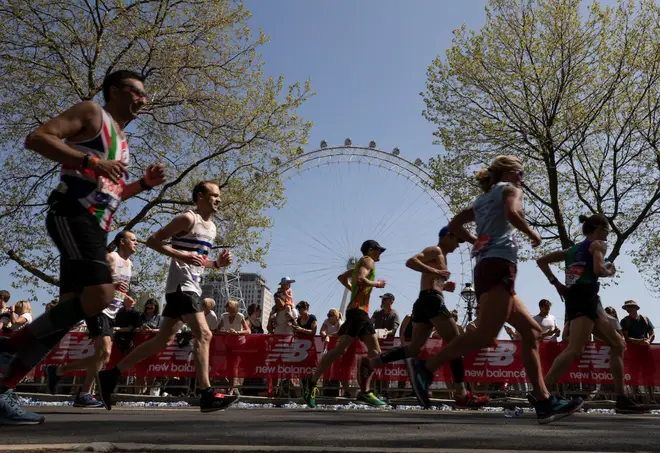
Today 100 elite athletes will take to the streets of London for the 40th annual Marathon, with thousands of people also taking part in an online virtual race.
This year's race, which should have originally taken place on the usual routes around the capital on Sunday April 26, will be the first even autumn marathon.
However, due to Covid-19, things look very this time around, with runners living in a 'biosecure bubble' in the lead up and wearing social distancing technology.
But what are the Covid-19 guidelines and how will a virtual marathon work?
Read more: Man runs marathon on 23ft balcony during quarantine
Read more: Eliud Kipchoge makes history with sub two-hour marathon run
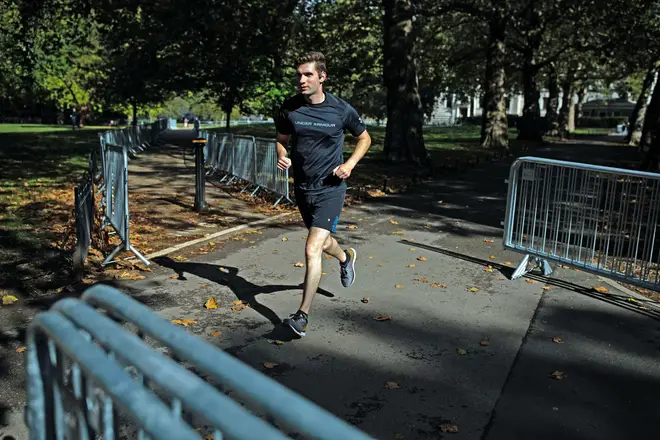
The 2020 London marathon will take place on Sunday October 4.
Timings for the day are as follows:
07:15 – Elite Women's Race
10:15 – Elite Men's Race
13:10 – Wheelchair races
00:00-23:59 - Virtual mass participation race
The three elite races will take place on an enclosed looped course in St James’s Park in a secure biosphere.
The race will start on Horse Guards Road, and athletes will run 19 laps in total to reach the required marathon distance before finishing on the Mall.
For non-elite runners, the marathon distance can be covered where ever during the 24 hour period.
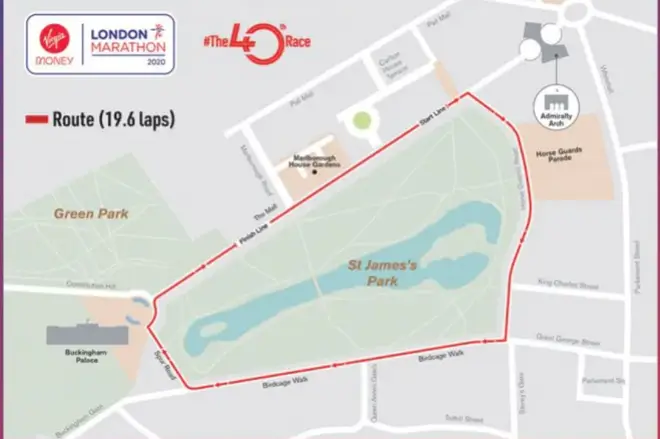
The race is only for elite athletes due to Covid-19 restrictions.
The marathon has already been pushed back once, from April to October, in the hope that Covid cases would have reduced and the race could return to normal.
However, any mass participation in the race was ruled out in August.
Instead, elite runners will be the only people competing in person, screened from public view.
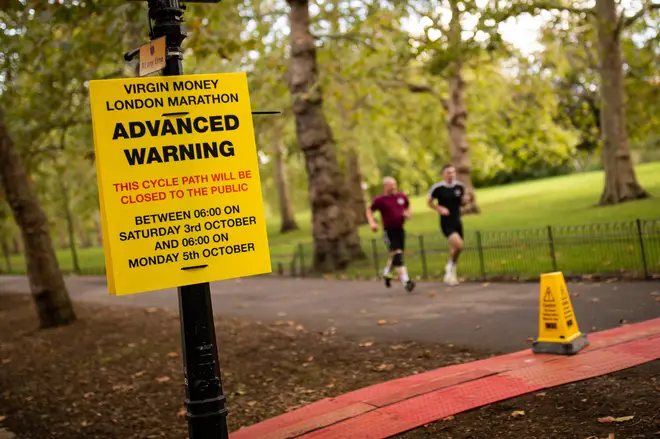
Anyone participating in the virtual marathon will have 23 hours 59 minutes and 59 seconds (from 00:00 to 23:59:59 BST) to complete the 26.2 miles.
They can choose to run, jog or walk the event.
Using the London Marathon app, they will be able to log their 26.2 miles and complete the marathon.
The London Marathon is being held in a 'biosecure bubble' this year, meaning all athletes and their teams are in a hotel where they will eat, sleep and train ahead of the race.
Each athlete was tested four days before leaving their home, again on arrival in the UK and again on the Friday before the race.
Some athletes, such as Etheopian runner Degitu Azimeraw, could not travel to compete as they tested posxitive for the virus.
To aid social distancing, the 500 event coordinators and 100 elite competitors will be wearing technology around their necks, called The Bump device, which makes an audible alert when the wearer is too close to others.

Elisha Nochomovitz, the balcony marathon man
London marathon has listed all athletes running in this year's race - You can see the full list here
Four-time Olympic champion Sir Mo Farah is the pacemaker for this year's men's race.
World record holder and defending champion Eliud Kipchoge will also be running.
British Paralympic great David Weir will be aiming for a record ninth win in the men's event.
In the women's elite race, defending champion and world record holder Brigid Kosgei of Kenya is aiming to set a new world best time.
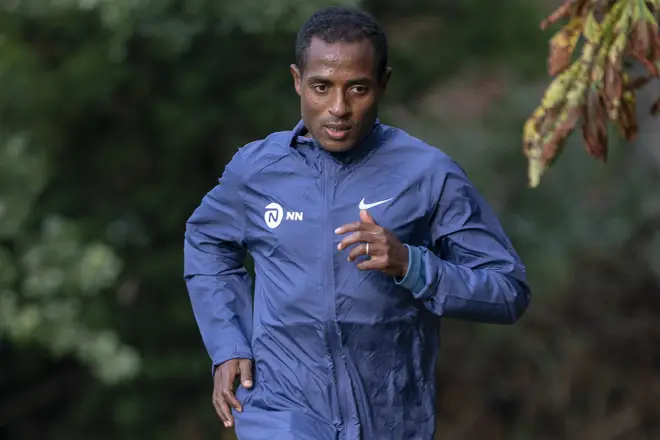
2hrs 1mins 39 seconds is the men's fastest time, set by Kenyan Eliud Kipchoge in Berlin in 2019.
2hrs 14 mins 04 seconds set by Brigid Kosgei in Chicago in 2019.
2011 Emmanuel Kipchirchir Mutai (Kenya) / Mary Jepkosgei Keitany (Kenya)
2012 Wilson Kipsang Kiprotich (Kenya) / Mary Jepkosgei Keitany (Kenya)
2013 Tsegaye Kebede (Ethiopia) / Priscah Jeptoo (Kenya)
2014 Wilson Kipsang Kiprotich (Kenya) / Edna Kiplagat (Kenya)
2015 Eliud Kipchoge (Kenya) / Tigist Tufa (Ethiopia)
2016 Eliud Kipchoge (Kenya) / Jemima Sumgong (Kenya)
2017 Daniel Wanjiru (Kenya) / Mary Jepkosgei Keitany (Kenya)
2018 Eliud Kipchoge (Kenya) / Vivian Cheruiyot (Kenya)
2019 Eliud Kipchoge (Kenya) / Brigid Kosgei (Kenya)
Last year, elite athletes received £241,400 in prize money, with another $850,000 awarded in time bonuses.
Winners of the elite men's and women's race received £42,400)for first prize.
However, due to financial constraints caused by Covid-19, the prize structure is reduced by almost 50 per cent this year.
For the first time ever, there will be a separate prize pool for the best performing British athletes.